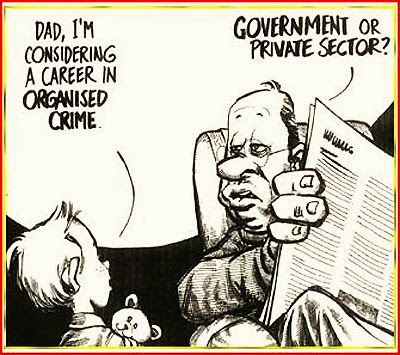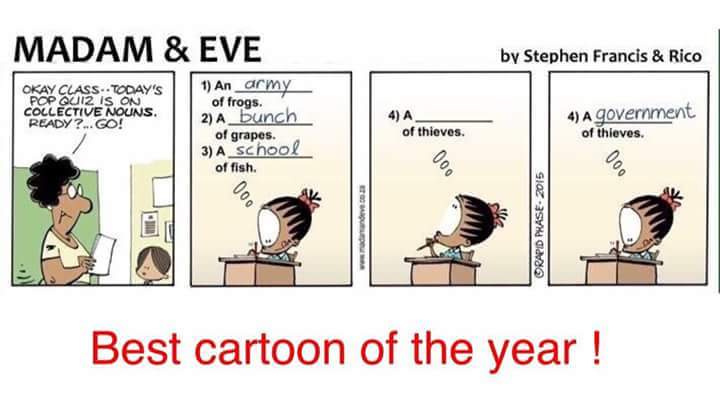further enlightening us laymen during these confusing times. One famous quote comes to mind:
"If we desire respect for the law, we must first make the law respectable" - Louis D Brandeis
From Malik Imtiaz’s blog:
Disquiet: Serving Justice, Straight Up
(Excerpts) with my highlights in bold letters:
It took me a while to understand that in as much as contract, commercial, criminal, constitutional or any other field of law was important, the existence of a functioning system by which the law was applied and enforced was far more crucial. For without such a system, it would not matter at all that there were laws.
When I first graduated from law school, I believed that all things said and done we had such a system. I am almost certain now that we do not.
We have courts, some of them in very opulent buildings that are akin to palaces. We have judges at all levels, be it at the subordinate courts or into the dizzying heights of the judicial hierarchy. There is in place an Attorney General’s Chambers from which spring a number of federal counsel and deputy public prosecutors who represent the State in its legal endeavours. They are complemented by a host of lawyers who, together with their counterparts from the civil service, apply laws that have been duly enacted by legislative chambers and Parliament respectively.
Impressive, one could say. I however reserve my judgment. Just like cameras, there are “point and shoot” lawyers and judges, and there are the far more sophisticated and capable ones. Both serve their purpose but one category serves it far better, something to think about considering the legal system is one whose standard cannot be compromised for any reason at all. Lives, in the widest sense, are at stake. They are being put at risk by the kind of individuals being allowed into the system.
All this however does not directly answer the question of whether the system is one that is functioning effectively. In this, it must be understood that the ultimate arbiter of whether a legal system is effective is the public that the system is intended to serve. The level of public confidence in the system is the only yardstick by which this effectiveness can be measured.
The stark reality is that the average Malaysian entertains grave doubts about the integrity or competence or both of those who make up the system (and in this, I tar lawyers with the same brush). From a public confidence standpoint, it could be said that the system is not functioning.
We cannot blame them for so doubting. Controversy upon controversy, many of which were unnecessary and avoidable, have impacted. Suspicions have been given foundation by the findings and recommendations of a Royal Commission of Enquiry that lambasted the system and urged urgent corrective measures. One cannot fault the average Malaysian for thinking justice is no longer the sacrosanct quality that it is meant to be, having instead transformed into something pliable that can be moulded to convenience.
This has had ramifications it seems. Malaysians have no alternative but to take their cases to the courts, it is the only way in which they can have their legal disputes resolved. Faced with a system that they have come to perceive as lopsided and pliable, it appears that they have attempted to improve, or at the very least even out, their odds where they have been able to do so. If the system were seen and understood to be unyielding, this would not be occurring.
It is perception that fuels belief that the system is hardly working as it should. As a lawyer, this saddens me, not because I think it is an unfair assessment but because I can see why it is they might believe this to be the case. Over the last twenty years the Judiciary has taken a beating, inside and out. It seems like every Chief Justice since Tun Dzaiddin started his term with laudable declarations concerning the need for reform only to subsequently find that the problem areas were so entrenched that resolving them was neither easy nor possible in their limited terms of tenure. Promises unfulfilled have deepened distrust.
It is high time that those who manage the institutions in ours system of justice wake up to the hard truth that mere rhetoric and superficial changes will not serve any purpose in attempts to rebuild confidence. Efforts must be real and driven by a desire to deliver to Malaysians objective justice at its keenest. It is not enough to say that there are those in the system who do just that. Though that may be the case, there are seemingly those who do not. It must be understood why this is the case and what can be done. The situation is desperate and calls for extreme measures.
Crucially, the system must be seen to be delivering justice. It is a cardinal rule of justice that not only must it be done, it must be seen to be done. The appearance of impartiality is paramount in building public confidence in the system. In this, standards must be seen to be applied uniformly, without exception. Explanations as to why they are not, do not go very far in explaining away the fact that they are not.
Perception is key. Without the public having confidence in the system, justice will never be served.
How should we judge a government?
In Malaysia, if you don't watch television or read newspapers, you are uninformed; but if you do, you are misinformed!
"If you're not careful, the newspapers will have you hating the people who are being oppressed, and loving the people who are doing the oppressing." - Malcolm X
Never argue with stupid people, they will drag you down to their level and then beat you with experience - Mark Twain
Why we should be against censorship in a court of law: Publicity is the very soul of justice … it keeps the judge himself, while trying, under trial. - Jeremy Bentham
"Our government is like a baby's alimentary canal, with a happy appetite at one end and no
responsibility at the other. " - Ronald Reagan
Government fed by the people

Career options

I suggest government... because nobody has ever been caught.
Corruption so prevalent it affects English language?

Corruption is so prevalent it affects English language?
When there's too much dirt...

We need better tools... to cover up mega corruptions.
Prevent bullying now!

If you're not going to speak up, how is the world supposed to know you exist? “Orang boleh pandai setinggi langit, tapi selama ia tidak menulis, ia akan hilang di dalam masyarakat dan dari sejarah.” - Ananta Prameodya Toer (Your intellect may soar to the sky but if you do not write, you will be lost from society and to history.)
Subscribe to:
Post Comments (Atom)
No comments:
Post a Comment